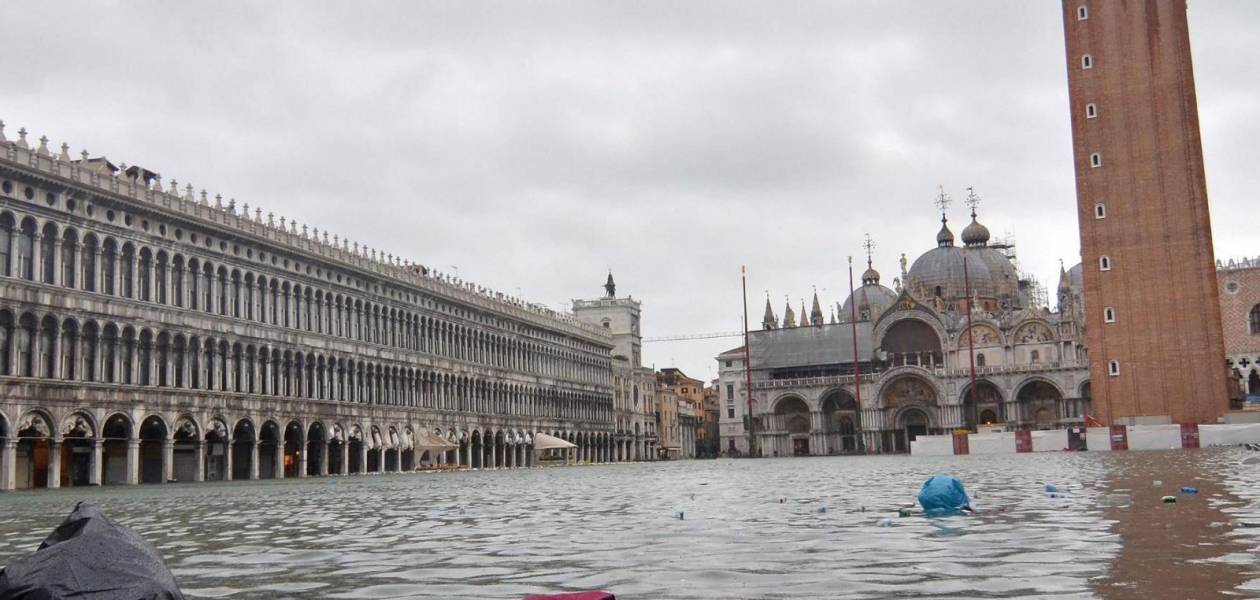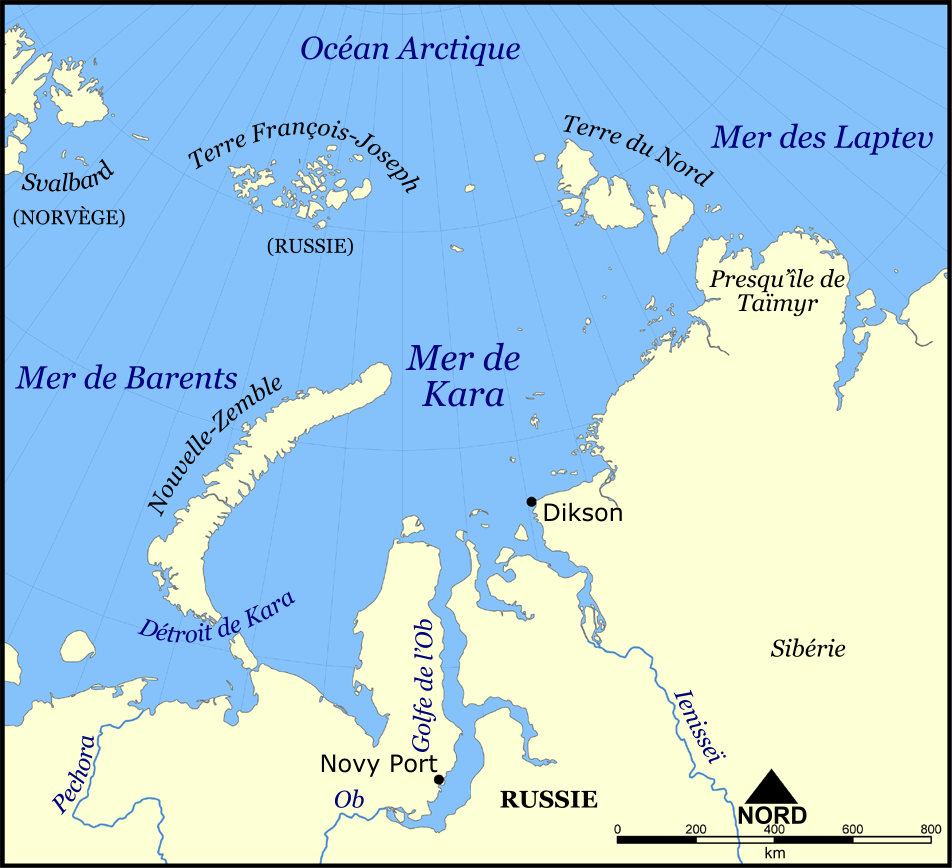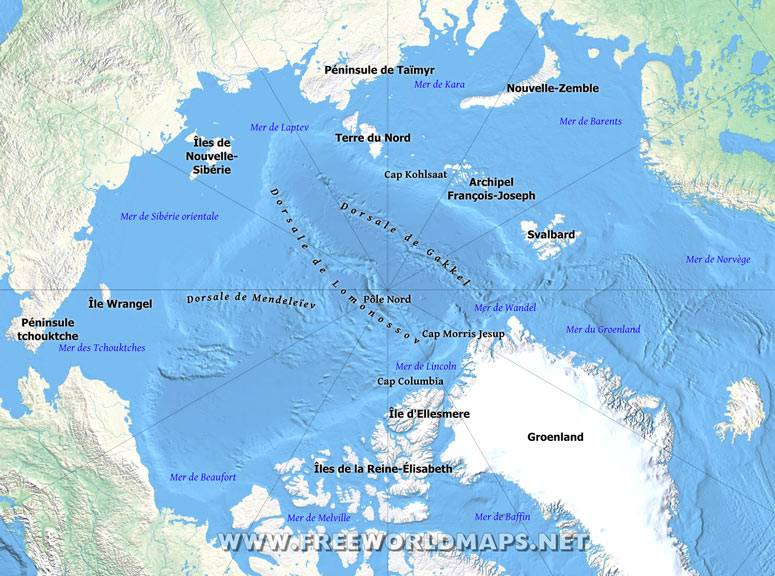
Climate change poses a serious threat to the Russian Arctic. Billions of tons of ice lost.
As the climate continues to warm, there is concern of significant ice loss in the Russian Arctic with obvious impacts on sea level rise. "Glaciers and ice caps in parts of the Russian Arctic are losing water due to accelerated melting representing the equivalent of nearly five million Olympic swimming pools each year," according to research.
Satellite data suggests that the amount of ice lost between 2010 and 2018 would submerge an area the same size as the Netherlands under more than 2 meters of water. Researchers say rising temperatures in the Arctic Ocean appear to be playing a key role in accelerating the melting ice of two large archipelagos bordering the Kara Sea.

A team from the University of Edinburgh used data collected by the European Space Agency's CryoSat-2 research satellite to map and monitor changes in the surface height and mass of ice caps and glaciers. The team then compared their results with climate data for the same eight-year period and found what they said was a clear link between rising atmospheric and ocean temperatures, and increased ice loss from both. groups of islands.
The analysis indicated that between the years 2010 and 2018, the archipelagos of Novaya Zemlya and Severnaya Zemlya - which represent a combined area of around 130,000 square km - lost a total of 11.4 billion tonnes of ice cream per year.
"The stability of several glaciers and ice caps in the region has already been affected by thinning ice, with fears that more ice loss could be observed in the future," according to the latest statements from the team. scientists. Ice caps are large boulders that are several hundred meters thick and in the particular region cover areas up to about 21,000 square kilometers.
Glaciers, on the other hand, are relatively smaller. Indeed, some of the ice caps store 12,000-year-old ice and can provide scientists with important long-term records of the evolution of the Arctic climate. Lead author of the study, Dr Paul Tepes, School of Geosciences, University of Edinburgh, said: “The Russian Arctic is largely inaccessible, but satellite data has enabled us to monitor changes in its ice caps and glaciers. As has been observed elsewhere in the world, the loss of ice in the region is accelerating. As the climate continues to warm, a significant loss of ice in the Russian Arctic will have obvious implications for sea level rise. ”
The results of the study accredit a set of theses that the conditions in the Arctic Ocean are starting to get much warmer. They would even approach the conditions found in the North Atlantic. The team hopes the study can help predict future ice loss in regions that experience similar patterns of temperature change in the ocean and atmosphere. It could also help improve global sea level forecasts.
The alarming finding is the same not far from; Greenland side where temperatures more than ten degrees higher than the seasonal norms were recorded thus causing an episode of "massive" melting of the Greenlandic ice sheet.

A team of glaciologists reports that in recent days, the ice cap that covers the vast arctic territory has melted by about 8 billion tonnes every day, double the average rate during the summer period. This assessment was made possible thanks to data provided by a modeling tool called Polar Portal which is managed by Danish research institutes.
Unusual temperatures of over 20 degrees, with local records, have been recorded in northern Greenland in recent days, according to the Danish meteorological institute DMI. A record was even set at the small Nerlerit Inaat airport in northeast Greenland, where the mercury reached 23.4 degrees on Thursday, the highest level measured since the weather station's readings began and warmer. than the maximum temperature recorded in Denmark that day.
Still according to Polar Portal data, the gigantic quantities of water coming from the melting ice, or 8,000 billion liters of fresh water per day! "Would suffice to cover the entire surface of Florida with five centimeters of water"
Beyond the large quantities of water escaping, it is the rate at which glaciers are melting that is causing real concern within the scientific community. Indeed, they observed that the warming is three times faster than elsewhere in the world and it does not seem to show signs of weakening. Quite the contrary. According to a European study published in January, the melting of the Greenland icecap should contribute to the general rise in the level of the oceans to the height of 10 to 18 centimeters by 2100, or 60% faster than the previous estimate.
By way of illustration, if the ice cap were to melt in its entirety, the oceans would see their levels increase by nearly 7 meters!
Posted on 2021-08-04 10:29








Comments